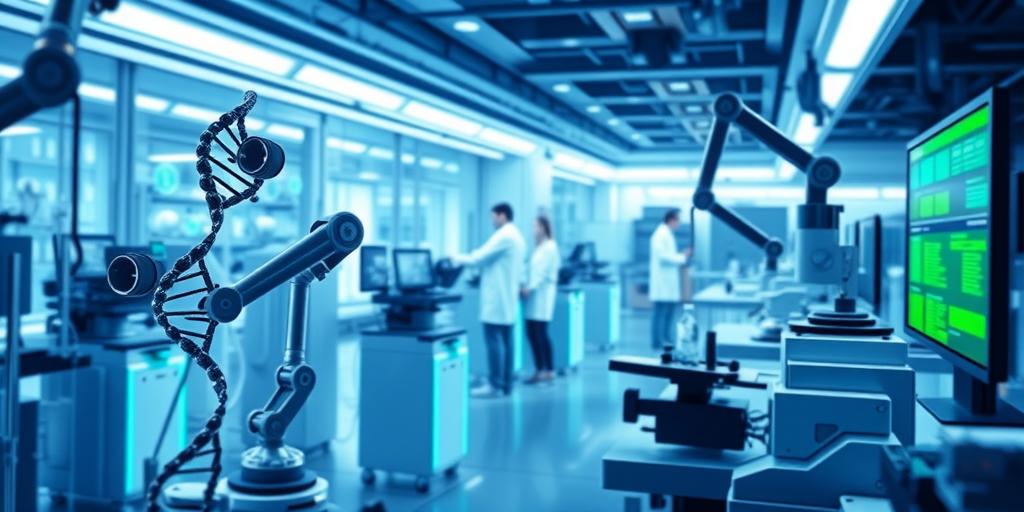The Intersection of Biotech and Emerging Tech
The convergence of biotechnology and emerging technologies is creating unprecedented opportunities and transforming industries. This article explores the dynamic interplay between biotech and innovative technologies, highlighting key areas where their synergy is driving progress.
1. AI and Machine Learning in Drug Discovery
Artificial intelligence (AI) and machine learning (ML) are revolutionizing drug discovery. These technologies accelerate the identification of potential drug candidates, predict their efficacy, and optimize clinical trial designs. AI algorithms analyze vast datasets to uncover patterns that would be impossible for humans to detect, significantly reducing the time and cost associated with bringing new drugs to market.
- Target Identification: AI algorithms sift through genomic and proteomic data to identify promising drug targets.
- Drug Design: ML models predict the structure and properties of molecules, enabling the design of more effective drugs.
- Clinical Trials: AI optimizes patient selection and monitors trial outcomes in real-time.
2. CRISPR and Gene Editing Technologies
CRISPR (Clustered Regularly Interspaced Short Palindromic Repeats) technology has transformed gene editing, allowing scientists to precisely modify DNA sequences. This breakthrough has profound implications for treating genetic diseases and developing new therapies.
- Precision Medicine: CRISPR enables the correction of genetic mutations that cause diseases like cystic fibrosis and sickle cell anemia.
- Agricultural Advancements: Gene editing enhances crop yields, improves nutritional content, and increases resistance to pests and diseases.
- Research Applications: CRISPR accelerates basic research by allowing scientists to study gene function more efficiently.
3. Nanotechnology in Diagnostics and Drug Delivery
Nanotechnology offers innovative solutions for diagnostics and drug delivery. Nanoparticles can be engineered to target specific cells or tissues, improving the efficacy and reducing the side effects of treatments.
- Targeted Drug Delivery: Nanoparticles deliver drugs directly to cancer cells, minimizing damage to healthy tissues.
- Advanced Diagnostics: Nanosensors detect biomarkers for early disease detection.
- Regenerative Medicine: Nanomaterials promote tissue regeneration and wound healing.
4. Robotics and Automation in Biotech
Robotics and automation are streamlining laboratory processes, increasing efficiency, and reducing errors. Automated systems perform repetitive tasks, allowing researchers to focus on more complex experiments.
- High-Throughput Screening: Robotic systems screen thousands of compounds to identify potential drug candidates.
- Sample Preparation: Automated liquid handling systems prepare samples for analysis with high precision.
- Data Analysis: Automated systems collect and analyze data, providing insights into biological processes.
5. The Internet of Things (IoT) in Healthcare
The Internet of Things (IoT) is transforming healthcare by enabling remote monitoring of patients, improving adherence to treatment plans, and facilitating data-driven decision-making.
- Remote Patient Monitoring: Wearable sensors track vital signs and transmit data to healthcare providers.
- Smart Pills: Ingestible sensors monitor medication adherence and provide real-time feedback.
- Data Analytics: IoT devices generate vast amounts of data that can be analyzed to improve patient outcomes.
Conclusion
The convergence of biotech and emerging technologies is accelerating innovation and transforming healthcare, agriculture, and other industries. As these fields continue to evolve, their synergy promises to deliver even more groundbreaking advancements that improve the quality of life for people around the world.









